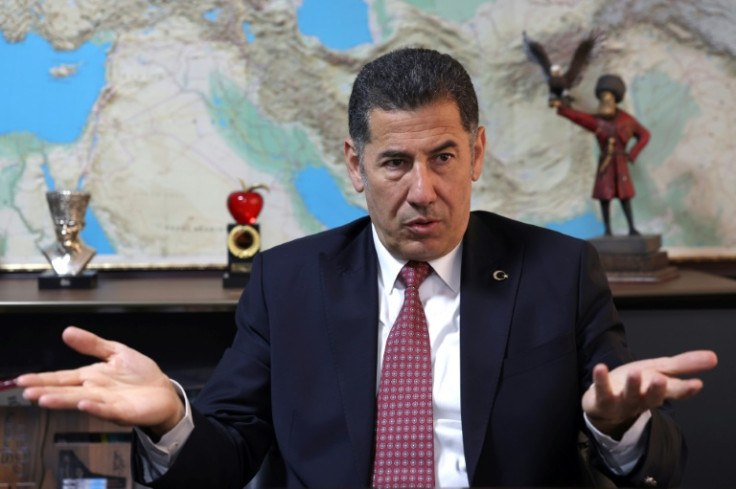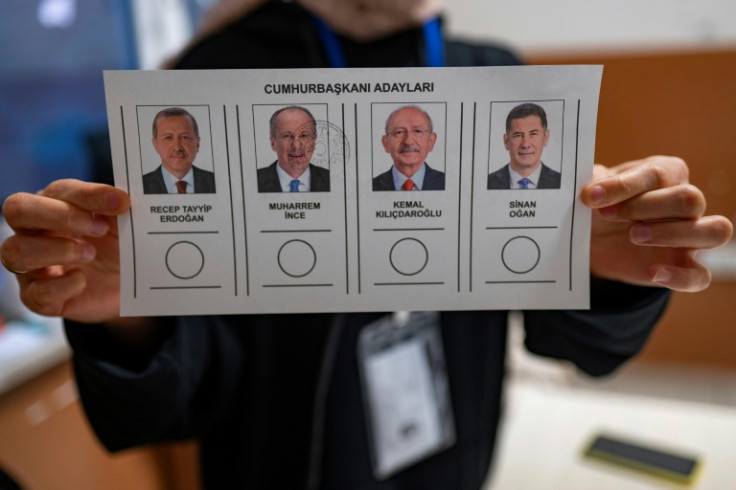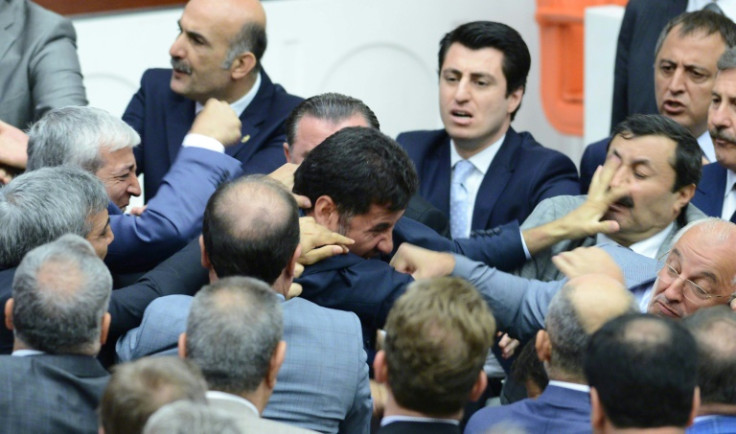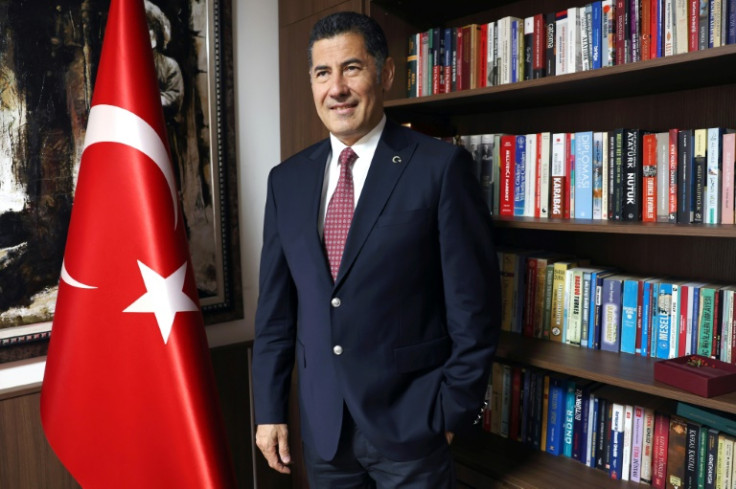Turkey's Ultra-nationalist Outsider Basks In Run-off Fame

An also-ran who helped push Turkey to its first run-off election on May 28 is using his new-found fame to make ultra-nationalism mainstream and tease over a second-round endorsement.
A dissident expelled from a far-right group, Sinan Ogan had spent most of his career on the periphery of Turkish politics before his unexpected score in Sunday's presidential ballot thrust him into the limelight.
Ogan, 55, picked up five percent of the vote, denying conservative President Recep Tayyip Erdogan a first-round victory against secular challenger Kemal Kilicdaroglu, who took 44.9 percent.
Ogan is believed to have sucked votes away from Erdogan, who fell less than one percentage point short of an outright win.
In an interview with AFP, Ogan said he would decide on his endorsement after talks with Erdogan and Kilicdaroglu -- but also suggested he may not support either candidate.
Ogan embodies the "Kemalist" principles of Mustafa Kemal Ataturk, a revered military commander who forged a secular Turkey out of the Ottoman Empire's ashes after World War I.
In that sense, he is different from Erdogan and his Islamic-rooted party, although both are right-wing.
This "commitment to the foundational principles of Ataturk created an appeal for those who have been opposing Erdogan yet are not satisfied with Kilicdaroglu", Kursad Ertugrul, a professor at Ankara's Middle East Technical University, told AFP.
Ogan described his supporters as "Turkish nationalists, Kemalists, young people, the masses who find us modern".
These represent "the masses... who see us as more intellectual, the masses who are fed up with the old faces", he said, depicting his ideology as an enlightened brand of nationalism.
His pledge to expel 3.7 million Syrian refugees living in Turkey back to their war-torn country appeals to anti-Erdogan nationalist voters.
He also stresses security and fighting "terrorists", a term used by Turkish politicians to designate pro-Kurdish groups accused of ties with an insurgency that has taken on the state since the 1980s.
"Structures that do not distance themselves from terrorist organisations should not be included in the government," Ogan told AFP.
He was referring to the main pro-Kurdish HDP party, which backed Kilicdaroglu's opposition alliance, and a far-right Kurdish group allied with Erdogan.
Ogan could theoretically prevent Erdogan from extending his two-decade rule to 2028 if all of his supporters back Kilicdaroglu.
"The winning equation will not be a simple sum of Erdogan's votes plus those won by Ogan, since many Ogan voters are also calling for change," Jay Truesdale of the risk advisory firm Veracity Worldwide told AFP.
But Ogan's "anti-Kurdish nationalism... makes it very difficult for Kilicdaroglu to strike a deal", predicted Turkish politics expert Ertugrul.
And since Erdogan almost won outright in the first round, he may not need Ogan's backing at all.
"Erdogan... doesn't need to make huge concessions to Ogan," said Berk Esen, a political science professor at Istanbul's Sabanci University, pointing to the president's parliamentary majority in alliance with another far-right party.
A polyglot ultra-nationalist from a minority group, the paradoxical Ogan was born in 1967, the youngest child of a rural and ethnically Azerbaijani family.
He grew up in the eastern city of Igdir, near the borders with Armenia and Iran, and once worked as a shepherd.
He received a doctorate in international relations and political science from the prestigious Moscow State University, is fluent in Russian and English and spent several years working in academia and think tanks.
Entering parliament in 2011 as an MP for the far-right MHP, Ogan is no stranger to speaking his mind or standing his ground, once getting involved in a violent scuffle with Erdogan's AKP party lawmakers in parliament.
"With God's help, we are defending the rights of the Turkish people in parliament. The number of AKP dogs we face doesn't matter," he wrote on Twitter at the time.
The MHP ejected him in 2017 over his opposition to Erdogan's constitutional referendum of that year that abolished the post of prime minister and effectively allowed the president to rule by decree.
Ogan then became an independent.



© Copyright AFP 2025. All rights reserved.





















